- Home
- James Rollins
Sigma Force 10 - The Sixth Extinction Page 7
Sigma Force 10 - The Sixth Extinction Read online
Page 7
“How very entrepreneurial. It sounds like the cyberpunks of the past have become the biopunks of today.”
“Only now they’re hacking into genetic code instead of computer codes. And again with little to no oversight. At the moment, the government depends on self-policing of these grassroots labs.”
“The sudden escalation in the number of labs doesn’t surprise me.”
“Why’s that?” he asked.
“The cost of lab equipment and materials has been plummeting for years. What once cost tens of thousands of dollars can be done for pennies now. Along with that, there’s been a corresponding increase in speed. Right now, the pace of our ability to read and write DNA increases tenfold every year.”
He calculated the implication in his head. That meant in ten short years, genetic engineering could be ten billion times faster.
Lisa continued. “Things are moving along at breakneck speeds. Already a lab has managed to create the first synthetically built cell. And just last year biologists engineered an artificial chromosome, building a functional, living yeast from scratch, with gaps in its DNA where they plan to insert special additions in the near future.”
“Designer yeast. Great.”
Lisa shrugged. “And there are darker implications about that genie getting out of the bottle. It’s not just accidental releases we need to worry about. I was reading about this Kickstarter program—where for forty dollars, a group of enterprising young biopunks will send you a hundred seeds for a type of weed that incorporates a glowing gene.”
“Glow-in-the-dark weeds? Why?”
“Mischief mostly. They want their funders to spread the seeds into the wild. They already have five thousand backers, which means over five hundred thousand synthetic seeds could be cast across the United States in the near future.”
Painter knew such actions were merely the tip of a dangerous iceberg. General Metcalf—the head of DARPA and his boss—had expressed that one of homeland security’s greatest fears was how vulnerable U.S. labs were to foreign agents. A terrorist organization could easily insert a graduate student or postdoctoral fellow into one of these bioweapon facilities, either to obtain a deadly pathogen or to get the necessary training to run their own labs.
Painter studied the fog-shrouded mountains in the distance.
Had something like that happened here? Had it been an act of terrorism?
To answer that very question—along with surveying the site firsthand—General Metcalf had ordered Painter to fly out to this remote Marine base. The Mountain Warfare Training Center had become the official staging ground for overseeing this disaster. He was to coordinate with the colonel who ran the center, where assets were already being gathered.
Painter could have left Lisa behind, but her knowledge and keen insight had already proved invaluable. Plus she had insisted on coming, her eyes aglow with the challenge. He reached his hand over to hers, their fingers entwining as if they were bound together forever. How could he refuse his future bride anything?
Such indulgence was part of the reason they had a third companion for this flight. Josh Cummings—Lisa’s younger brother—sat up in the cockpit, carrying on an animated conversation with the flight crew. Josh was presently pointing to the airstrip below. It was the main airfield for the Marine base, a site the young man had visited often in the past, and the other reason he was along on this ride.
Like his sister, Josh was lean and blond-haired. He could easily be mistaken for a typical California surfer, but Josh’s passion was less about sea and sun than it was about heights and sheer cliffs of rock. He was a renowned mountaineer, summiting a majority of the world’s tallest peaks in his twenty-five years, garnering accolades for his skill and building a small business from several of his patents on equipment design.
As a result, he had developed a working relationship with this base as a civilian consultant. He even wore the red knit cap of a Mountain Warfare Instructor, known simply as Red Hats. Few civilians ever earned the right to wear that cap, to teach soldiers the ins and outs of working a mountain. It was a testament to Josh’s skill.
But other than that cap, few would mistake Josh for a U.S. Marine. He wore his hair to his shoulders and had a casual disregard for authority. Even his garb was anything but military. Under a sheepskin jacket—something Josh had won from a Sherpa after a night of poker inside a tent on a slope of K2 during a snowstorm—he wore a gray expedition-weight thermal shirt with his company’s logo. It was a silhouette of a set of mountains with the centermost one the tallest. It looked distinctly like a fist giving you the finger.
Definitely not military approved.
For most of the year, Josh lived out of his backpack, but he had been in town for the wedding and had insisted on accompanying his sister to the base. Painter had agreed without reservations. Josh knew most of the personnel up here and could vouch for Painter, hopefully helping to smooth any ruffled feathers from Sigma’s trespassing into their territory. Plus from Josh’s training exercises in the past, he had intimate knowledge of the local terrain, which could prove useful.
Josh demonstrated that now, calling out loudly to be heard over the engines. “Land at the north end of the airfield. You’ll cough up less sand. That’s where the Marines do most of their V/STOL training.”
Lisa glanced at Painter with a quizzical arch of an eyebrow.
“Vertical takeoff and landing,” he translated. If the armed forces loved anything more than their guns, it was their acronyms.
Still, Painter couldn’t dismiss a bit of excitement as their aircraft readied itself to land. They were flying aboard an MV-22 Osprey, courtesy of the Marine Corps Air Ground Combat Center at Twentynine Palms, , outside of Los Angeles. The unusual vehicle was known as a tiltrotor, named for its ability to transform from a traditional prop-engine plane into a helicopter-like craft by rotating the engine nacelles at the ends of each wingtip.
Twisting in his seat, Painter watched the propellers slowly swing from vertical to horizontal. The plane’s forward speed rapidly slowed until it was expertly hovering over the airfield; then the massive craft lowered toward the ground. Moments later, their wheels touched down.
Lisa let out a breath she must have been holding with a loud sigh. “That was amazing.”
Painter noted another two Ospreys parked farther away, with crews working around them, suggesting they’d just arrived, a part of the mobilization happening here. A bevy of other Marine helicopters dotted the field.
“Looks like everyone took up your invitation,” Lisa said.
Before leaving the coast, Painter had laid down a rough sketch of the order of operations for this mission: search and rescue, evacuation, site quarantine, investigation, and finally cleanup. The first three duties were already under way, allowing Painter’s team to proceed directly with their investigation.
He knew where he wanted to start. The first responders—a U.S. Marine search-and-rescue team—had saved the life of a witness, a local park ranger who had happened to be on-site when the base exploded. Painter had heard about the firefight atop a neighboring hill, which raised a substantial mystery: Who were those hostiles and what did they have to do with what had transpired at the base?
Only one person potentially had those answers.
And from what Painter had heard en route—she wasn’t talking.
10:19 P.M.
Jenna didn’t bother to check the doorknob. She knew she was locked inside. She paced the length of the space. Judging from the chalkboard in front and the rows of seats, she figured it was a small classroom. Out the third-story window, she spotted a dark ski lift in the distance, along with a row of stables. Directly below her, an ambulance slowly sidled away from the entrance to the building.
The departing EMS team had already seen to her injuries: wrapping her arm, suturing the small laceration across her collarbone, then finally injecting her with antibiotics. They offered to shoot her up with pain relievers, but she opted to simply pop so
me ibuprofen.
Have to keep my head clear.
But her growing anger wasn’t helping.
Nikko, sprawled on the floor, watched her, his gaze tracking her as she stalked from one side of the classroom to the other. A bowl of water and an empty food dish rested beside him. A tray holding a cellophane-wrapped ham sandwich and a carton of milk sat on one of the desks. She ignored it, still far from having an appetite.
She checked her watch.
How long are they going to keep me here?
The Marine who had rescued her—Gunnery Sergeant Samuel Drake—had told her she would be debriefed by someone from Washington. Yet it had been over an hour since she had arrived here.
So where the hell is this guy?
The base commander had stopped to check in on her, asking her some questions, but she had stonewalled him. She would tell her story once, but only after getting some answers first.
A scuff and rattle drew her attention back to the door.
Finally . . .
She withdrew a few steps and crossed her arms, ready for a fight. The door opened, but it was not the man she had been expecting. Gunnery Sergeant Drake entered. He looked refreshed, his dark brown hair wet and combed back. He wore a loose pair of khaki trousers and a matching T-shirt that clung tightly across his chest, exposing muscular arms.
While she wanted to be perturbed at the intrusion, she found her arms uncrossing, doing her best to look casual. She was sure she failed miserably.
He smiled at her, which didn’t help matters.
“Just bringing a gift from a friend,” he said, his voice a deep bass that felt warmer than before, no longer curt and hardened by the weight of command. “Thought maybe you’d be willing to share.”
He lifted an arm to reveal a large brown paper sack, slightly damp along the bottom edge.
“What is it?” She took a step closer, then a familiar aroma struck her.
It can’t be.
“Baby back ribs from Bodie Mike’s Barbecue,” he confirmed. “Also coleslaw and fries.”
“How . . . ?” she asked, stammering in confusion.
He grinned wider, showing perfect teeth. “We’ve got people flying back and forth between here and Mono Lake, coordinating the evacuation. It seems a friend of yours decided to send back a care package from Lee Vining before the town was evacuated. He thought you might be hungry after all of the excitement.”
Only one person knew she was here.
She smiled for the first time in what seemed like ages. “Bill, I could kiss you.”
Drake’s dark eyes twinkled with amusement. “If you want, I’m sure I could relay that back to him?”
“How about I just split the fries with you instead?” She moved to one of the desks.
“What about the ribs?”
“Nope. They’re all mine.”
He shifted a desk closer and swung a leg over the chair to sit next to her. As he ripped open the bag, she quickly found her appetite again. She was halfway through the slab of the ribs, with Nikko firmly at her knee, a hopeful expression fixed on his face, when the door opened again.
A contingent of strangers entered. It had to be the party from D.C. After waiting for so long, she now wished they’d leave and come back later.
She wiped her fingers.
Drake stood quickly and stiffly as the base commander entered with the others. “Colonel Bozeman.”
“At ease, Drake.” The commander looked to be in his early sixties, with silver hair to match the eagle resting above rows of colorful ribbons on his khaki shirt. His eyes settled on the half-finished meal. “Didn’t mean to interrupt, Ms. Beck, but this is Director Painter Crowe, an adjunct with DARPA. He has some questions before we get you back to your fellow rangers.”
The man’s two companions were introduced. They were clearly related, likely brother and sister, maybe even twins, but she concentrated on the man in front. The newcomer had black hair, with a single lock gone snowy white and tucked behind an ear. His complexion was clearly of Native American heritage, but his sharp blue eyes hinted at some European blood in there, too. She wanted to snap at him, but something in his manner defused her. Maybe it was the shadow of a welcoming smile or the intelligent glint to those eyes. This was clearly no meddling bureaucrat or condescending intelligence agent.
Still, she found her hand covering the phone in her pocket.
I want answers.
Crowe turned to the colonel. “Could we have some privacy?”
“Certainly.” Bozeman waved to Drake. “Let’s give them the room.”
Drake followed him out, but not before bumping his fist with the blond man who remained leaning against the door. “Good to see you, Josh.”
“Wish it was under better circumstances.”
“Me, too.” He grinned broadly. “But that’s why they pay us the big bucks, isn’t it?”
As the two Marines left and the door closed, Crowe turned his laser focus back to Jenna. “Ms. Beck, you’ve been through a lot, but I was hoping you could give us some additional information about what happened tonight. Run through events in as much detail as possible. I’m especially curious about the group of men who attacked you atop the hill.”
She stood her ground. “Not before you tell me what really was going on inside that research station. It’s put the entire basin at risk. Not only the fragile ecosystem here that took millennia to build, but also endangering my friends and colleagues.”
“I wish I could tell you,” he answered.
“Wish or won’t?”
“To be honest, we don’t know the exact nature of the work. The base was headed by Dr. Kendall Hess, a very secretive fellow.”
Jenna frowned, remembering the astrobiologist who had come down to Mono Lake. She recalled her conversation with him over a cup of coffee at Bodie Mike’s. Even back then, she’d been struck by how guarded he was, how carefully he chose his words.
“I met him,” she admitted. “When he was collecting core samples of the mud at the bottom of the lake.”
Crowe turned back to his companion, Lisa Cummings. He silently communicated with her, as if the two were judging if this detail was important or not.
Jenna glanced between them, her frown deepening. “What was Dr. Hess working on?”
Crowe faced her again. “All we know for sure is that he was studying and experimenting with exotic life-forms.”
“Extremophiles,” Jenna said with a nod, remembering the details of their brief talk. “He said he was looking for unusual organisms—bacteria, protozoa—anything that might have developed unique strategies to survive in harsh environments.”
Lisa stepped closer. “More specifically he was investigating shadow biospheres, environments where nonstandard life might exist in secret. We believe his interest in this area came about after some NASA scientists found bacteria in Mono Lake that could be trained to live on arsenic.”
Jenna understood. “So that’s why Dr. Hess chose this location.”
Crowe nodded. “Perhaps to continue that line of research, or even take it a step farther. We believe he might have been trying to engineer something new, something that never existed on this planet.”
“And it got loose.”
“That’s what we believe, but we don’t know if it was an industrial accident, lab error, or something more malicious.”
Jenna rubbed Nikko. He remained calm and relaxed at her side, showing no tension. He plainly felt no wariness in the presence of these strangers. Over the years, she had grown to trust her partner’s judgment of character. Along with that, she sensed no subterfuge in the trio’s manner and appreciated their willingness to share information.
Taking a chance, she opened herself up a bit. “I don’t believe it was an accident, Director Crowe.”
“Painter is fine, but why do you think that?”
“I saw a helicopter leaving the base between the time the mayday was sent out and when everything went to hell. It was the same helico
pter that offloaded a squad of mercenaries atop that hill. They must have spotted me fleeing from the toxic cloud.”
“And went after you to eliminate the only witness.”
She nodded. “They came darned close to accomplishing that.”
“Can you describe the helicopter? Did you note any insignia or numbers?”
She shook her head. “But I did get a photo of it.”
She took a small measure of enjoyment at his shocked expression. As she pulled out her cell phone, she related what had happened at the ghost town, going into as exacting detail as she could. She also called up the camera roll on her phone and went through the pictures. She stopped at the photo of the giant carrying a flamethrower.
“This guy seemed to be the leader of the assault team.”
Painter took her phone and zoomed in on his features. “You caught a clear shot of him. Good job.”
She felt a flush of pride. “Hopefully he’s in some database.”
“I hope so, too. We’ll definitely run him through facial recognition software, both here and abroad. We’ll also get the photo of the helicopter into law enforcement bulletins across the Southwest. They can’t have gotten too far.”
“They also have a prisoner,” she warned. “One of the scientists. Or at least the man was wearing a white lab coat. He tried to escape, but that guy with the flamethrower recaptured him, dragged him back to the helicopter and took off.”
Painter looked up from the phone. “Did you get a picture of their prisoner?”
“’Fraid not. By that time I had already hid my phone with Nikko.” She patted the husky’s side.
Painter studied her closer, then spoke as if reading her mind. “Let me guess. You hoped that once they killed you, the enemy would leave. Then later someone would find Nikko and your phone.”
She was impressed. She had mentioned none of that, but the man had figured it all out anyway.

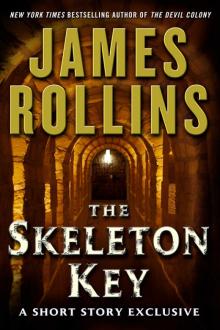 The Skeleton Key
The Skeleton Key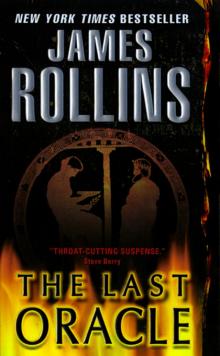 The Last Oracle
The Last Oracle The Judas Strain
The Judas Strain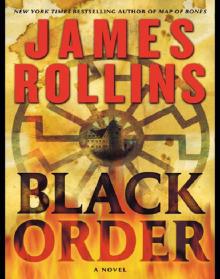 Black Order
Black Order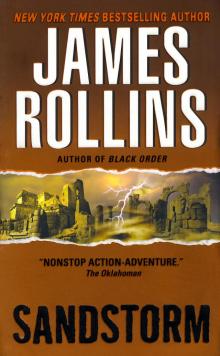 Sandstorm
Sandstorm Ghost Ship
Ghost Ship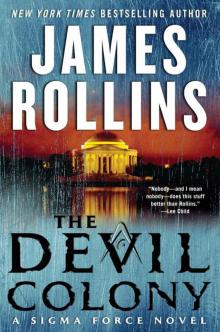 The Devil Colony
The Devil Colony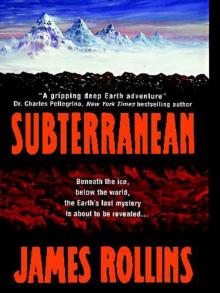 Subterranean
Subterranean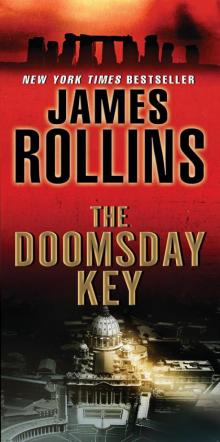 The Doomsday Key
The Doomsday Key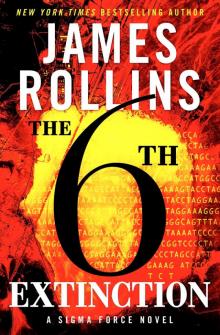 The 6th Extinction
The 6th Extinction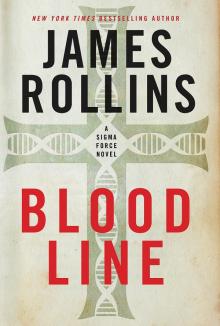 Bloodline
Bloodline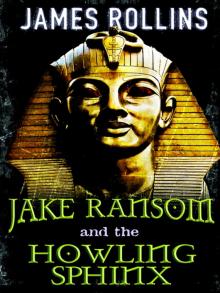 Jake Ransom and the Howling Sphinx
Jake Ransom and the Howling Sphinx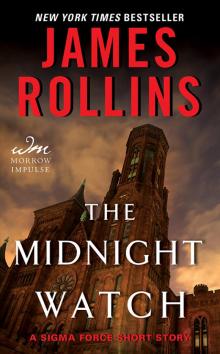 The Midnight Watch
The Midnight Watch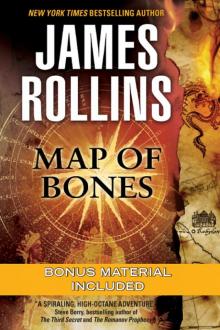 Map of Bones
Map of Bones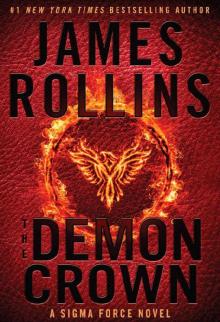 The Demon Crown
The Demon Crown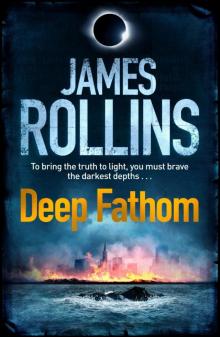 Deep Fathom
Deep Fathom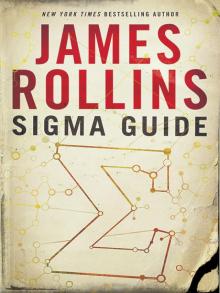 Sigma Guide
Sigma Guide Kowalski's in Love
Kowalski's in Love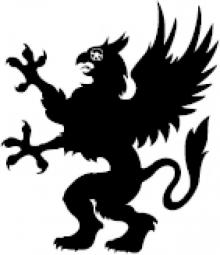 Jake Ransom and the Skull King's Shadow
Jake Ransom and the Skull King's Shadow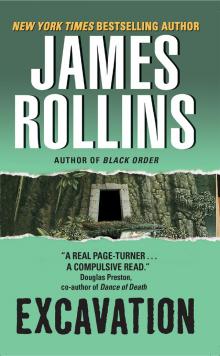 Excavation
Excavation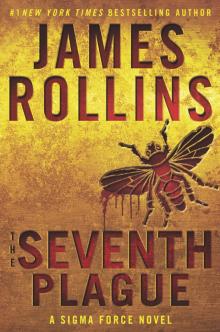 The Seventh Plague
The Seventh Plague Altar of Eden
Altar of Eden Unrestricted Access: New and Classic Short Fiction
Unrestricted Access: New and Classic Short Fiction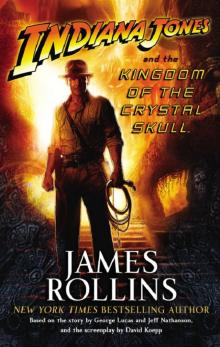 Indiana Jones and the Kingdom of the Crystal Skull
Indiana Jones and the Kingdom of the Crystal Skull Crucible
Crucible The Eye of God
The Eye of God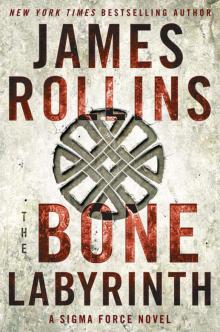 The Bone Labyrinth
The Bone Labyrinth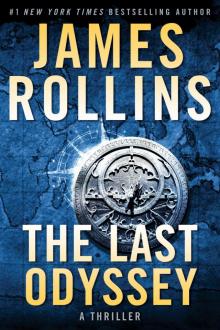 The Last Odyssey: A Thriller
The Last Odyssey: A Thriller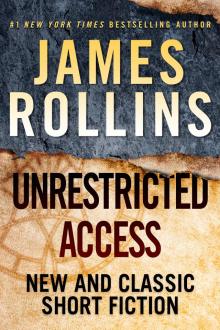 Unrestricted Access
Unrestricted Access Amazonia
Amazonia Blood Brothers: A Short Story Exclusive
Blood Brothers: A Short Story Exclusive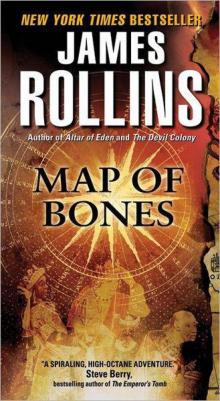 Map of Bones: A Sigma Force Novel
Map of Bones: A Sigma Force Novel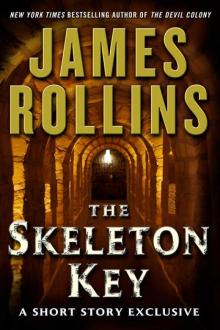 The Skeleton Key (sigma force)
The Skeleton Key (sigma force)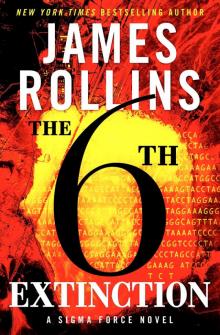 Sigma Force 10 - The Sixth Extinction
Sigma Force 10 - The Sixth Extinction Innocent Blood
Innocent Blood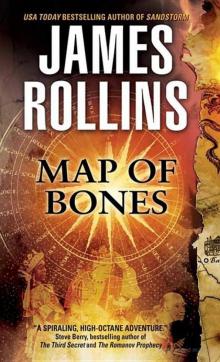 Map of Bones sf-2
Map of Bones sf-2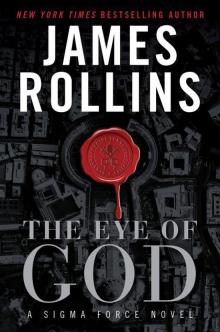 The Eye of God: A Sigma Force Novel
The Eye of God: A Sigma Force Novel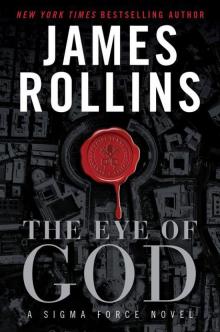 The Eye of God: A Sigma Force Novel sf-9
The Eye of God: A Sigma Force Novel sf-9 The Pit
The Pit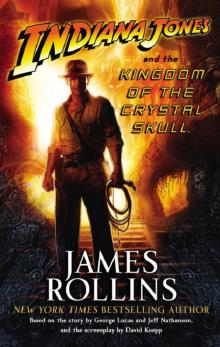 Indiana Jones and the The Kingdom Of The Crystal Skull
Indiana Jones and the The Kingdom Of The Crystal Skull The Last Oracle (2008) sf-5
The Last Oracle (2008) sf-5 City of Screams
City of Screams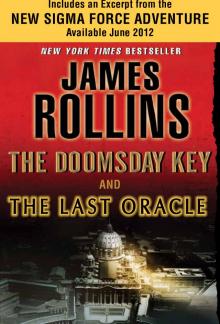 The Doomsday Key and The Last Oracle with Bonus Excerpts
The Doomsday Key and The Last Oracle with Bonus Excerpts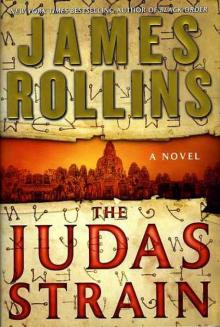 The Judas Strain sf-4
The Judas Strain sf-4 Blood Infernal
Blood Infernal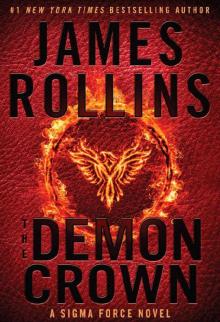 The Demon Crown: A Sigma Force Novel
The Demon Crown: A Sigma Force Novel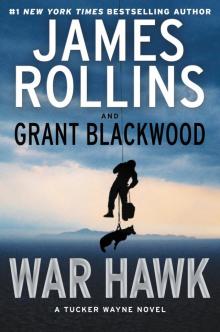 War Hawk: A Tucker Wayne Novel
War Hawk: A Tucker Wayne Novel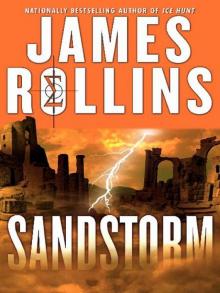 SANDSTORM sf-1
SANDSTORM sf-1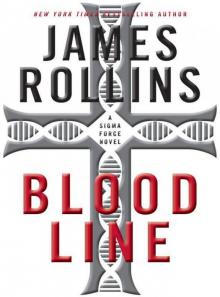 Bloodline: A Sigma Force Novel
Bloodline: A Sigma Force Novel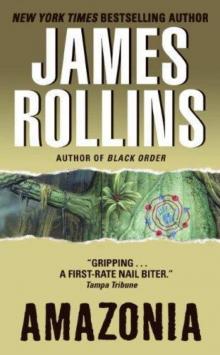 Amazonia: a novel
Amazonia: a novel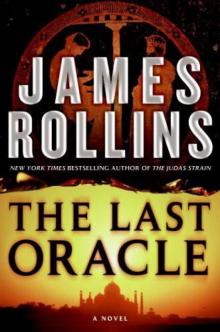 The Last Oracle: A Sigma Force Novel
The Last Oracle: A Sigma Force Novel City of Screams (the order of the sanguines)
City of Screams (the order of the sanguines)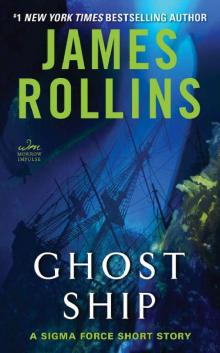 Ghost Ship: A Sigma Force Short Story
Ghost Ship: A Sigma Force Short Story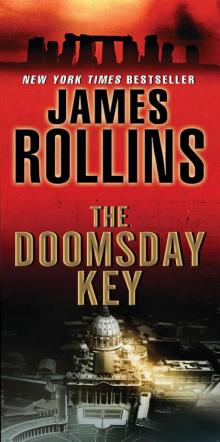 The Doomsday Key: A Sigma Force Novel
The Doomsday Key: A Sigma Force Novel